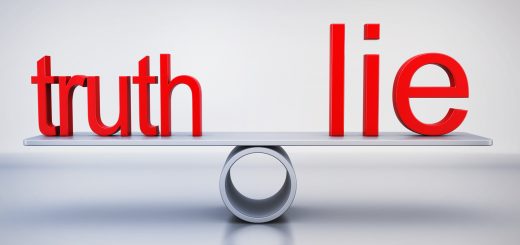Taking Responsibility For Lebanon – By Whom?

Whether or not Israel actually lost the war, the recent Israel/Lebanon war surely resulted in a less than preferred outcome for the Jewish people. Young Jewish souls were lost. Soldiers remain kidnapped. Property was devastated, and families were severely disrupted with communities forced into bomb shelters or compelled to evacuate their towns. Deep residual emotional scars abound.
The less informed have commenced the predictable banter of demands for resignations and admissions of culpability. Those identified as responsible include a parade of politicians and military leaders. The results of war allegedly reflect the failed efforts and judgments of these individuals. But other observers, particularly the more spiritually advanced, understand otherwise.
Since the inception of the modern Israeli state, a significant segement of Orthodox Jewry has understood the Torah learning of Torah scholars as dictating fate on the battlefield. After each Israeli military victory, the learned have rejected the military bravado of the secular Israeli. It is not the bravery or strategic prowess of the Israeli soldier or commander that facilitated victory – it is rather pious Torah study and behavior, taking place behind the scenes, that guides our fate. The prayers and religious behavior of the righteous have facilitated the victories. This view influences attitudes, but also dictates significant life choices.
One can only imagine the emotional anguish currently being experienced by Torah community leadership for the massive suffering of recent weeks. Alas, to those leaders who are actually responsible for how G-d treats his people, the option of resignation is unavailable, and sidestepping responsibility unimaginable.
In the yeshiva in which I studied many years ago, a young student was killed in a tragic automobile accident. Several days after the accident, a friend of the departed student approached the head of the yeshiva pleading for the Rosh Yeshiva to advise the victim’s friends on how to respond, for surely there is a dimension of collective responsibilty when tragedy affects one of a social group. The Rosh Yeshiva, with tear filled eyes of sadness, responded with surprise. The Rosh Yeshiva explained that it is not the burden of the peers to bear responsibility for the tragedy, but rather tragedy results from the failure of the leadership. “It is I,” lamented the Rosh Yeshiva, “who must carry the burden and investigate my deeds.”
As the contemplative month of Elul begins, and as rapidly approach the judgments of Rosh Hashannah and Yom Kippur, those upon whose shoulders rest the fate of the Israeli future struggle with their burden. And we simple individuals, whose role is of lesser significance, and whose actions have barely a noticeable consequence, must surely also carry our share of the burden.




1. Every individual from the highest spiritually to the lowest can improve.
2. Victories and defeats can each prompt good or bad responses, depending on how the events are understood.
3. Leaders may believe that their own actions strongly influence the results, but it may be too much to say these actions dictate the results. The free decisions of all the other players, individually and collectively, also have an impact on the results. HaShem’s own master plan, often hidden to us, certainly can override all other considerations.
We have only a very limited understanding of the dynamics of specific old and new events, or of our personal interactions with the world, but any steps we now take to add to our merits will bear fruit at the right time and place.
Mark Bane raises a critical issue: who are our true leaders? And its corollary, who are the led? And what is the relationship between the leaders and the led?
In one sense, “our leaders” are those whom we recognize as “ours”. If we are fragmented, then each fragment will recognize its own. Thus in Israel I would look to the Roshei Yeshiva of the Hesder Yeshivot (especially Rav Aharon Lichtenstein and Rav Yehudah Amital of Yeshivat Har Etzion), my Charedi Ashkenazi cousins look to the Rosh Yeshiva of Ponevitz and the Vizhnitzer Rebbe (some are Litvish and some are Chassidim), my Charedi Sefardi cousins look to Rav Ovadia Yosef.
I have absolutely no doubt that the leaders cited above are towering Gedolei Yisrael, along with others not mentioned. But the issues that burn in my heart are what constituency do they see themselves as serving, and what consitutency do they in fact serve.
It seems to me that the real challenge of Medinat Yisrael is to rebuild a complete Torah-based society, to bring G-d’s Presence into every aspect of life-personal, family, social, and governmental. I wonder whether all the leaders that I mentioned are in fact trying to do that, and to the extent that they are trying, are succeeding-even in incremental but cumulative ways.
If our leaders do not lead us to a unified whole, and if we are not willing to be lead to that unified whole, we may be fated to continue along the path of a fragmentation so intense that it breeds hostility, and leads to the destruction of our sovereignty in Eretz Yisrael.
I neither expect nor even hope for such a unifying leadership from politicians, particularly secular politicians, whom I see as the false hope of all too many secular Israeli Jews and non-Orthodox American Jews.
But I do hope for it from the Gedolim who are our true leaders, and anguish over finding it much more rarely than we need, whether from the leaders themselves or from those of us who are followers.
As we enter Ellul, let us try to broaden our vision of who counts as part of the constituencies that we serve, and deepen our commitment to sharing all dimensions of life with them.
Rabbi Chaim Frazer
A little more nuance, please.
“It is not the bravery or strategic prowess of the Israeli soldier or commander that facilitated victory – it is rather pious Torah study and behavior, taking place behind the scenes, that guides our fate.”
What of the soldier who leaped on a grenade crying “Shma Yisrael”. And the sacrifice shown by a secular soldier to save his unit is not a pious act?
“Alas, to those leaders who are actually responsible for how G-d treats his people, the option of resignation is unavailable, and sidestepping responsibility unimaginable.”
(Maybe we should launch a commission to investigate our Torah leaders?) “And we simple individuals, whose role is of lesser significance, and whose actions have barely a noticeable consequence…” Do you have a source for this? Alas, these lines (and the post in general) reeks of the notion that better we reinforce the pious Torah study of the few than seek to gain the general Torah observance of the many.
Maybe a lot more nuance, please.
To Zalman
You are asking on Aug. 28, whether we should launch a commission to investigate our Torah leaders? Maybe you share with us who is qualified to investigate them? You? Certainly not me.
I beg to differ with the Rosh Yeshiva quoted in Mark Bane’s write-up. We all bear responsibility for what happens around us. It’s well known that Ramchal and many others state that when we employ resources made available to us (time, money, brainpower, etc.) in avodas HaShem, we steig and the world steigs with us. They are teaching us that the little me can make a difference. This means that there is collective responsibility for the great losses inflicted on us. The Rosh Yeshiva may have meant that such responsibility is commensurate with a person’s station in Yahadus, which means that his Torah and maasim tovim don’t free me from my responsibility to be a loyal oved HaShem.